Written by Oksana Malysheva, CEO and managing partner of Sputnik ATX–an Austin-based accelerator that funds maker-founders.
Recently, over the course of one week I found myself doing two activities that I swore I would never do again: stand in line for food and stock up on toilet paper amidst bare shelves.
The parallels between my old world in Kiev, Ukraine, and my new world in Austin, Texas, were squarely in front of me.
This used to be my story almost 30 years ago and oceans away. The half-empty stores and long lines after work to buy food and other necessities were a way of life under the Soviet Union. As a young idealistic student studying physics, I was not willing to spare time for mundane matters such as food, and had decided I would rather live on oatmeal, diving into Bulgakov, Gabriel Garcia Marquez and Nietzsche, than wait in grocery lines.
Subscribe to the Crunchbase Daily
I had also become a vegetarian (meat was the most difficult item to source and I was not willing to trade my time for food).
Later, when we immigrated to the United States–supermarkets were a marvelous sight, so much so that we took pictures of the yogurt and meat shelves and sent them home. No one would believe us otherwise. I gladly resumed being a carnivore.
A story of cake
Yet here I was in the midst of the coronavirus pandemic spending a Sunday afternoon trying to get into my local Trader Joe’s, followed by a trip to the post office to send a jumbo pack of toilet paper to my sister in New Jersey. This got me thinking: What did I learn back then in Ukraine that had served me well throughout my life?
And then I recalled a story of cake.
I was a 20-year-old student studying physics in Moscow and had just married the love of my life, who was also a physics student. We had many dreams and aspirations, and everything seemed within reach. We just had to pass the quantum physics exam. My parents and my sister lived in Kiev, a beautiful city on the bank of the mighty Dnipro River, where the streets were lined with old chestnut trees. We were solidly middle class, which in Kiev at the time meant our family of four, plus my grandma, lived in a two-room apartment. My parents slept in the living room on a pull-out couch, and my sister, myself and our grandma shared a bedroom.
We were all happy, healthy.
Except the world around us was completely crumbling. In a matter of a few short months, my country broke apart, narrowly surviving a military coup. The Soviet government announced that it would introduce a market economy on the prices of what citizens could buy, but they conveniently forgot about market-pricing salaries. Everyone knew the price of goods would grow tenfold right after the new year, so they stocked up, pushing grocery stores’ stock from bad to desperate.

Christmas was coming, and my mom was determined to make a cake to send to us in Moscow. My mom is an amazing baker, whose cakes we indulged throughout my childhood.
If you’ve ever baked a cake you probably know they require flour, eggs, butter, sugar, cream. Unlike cooking, baking is a precise science, and the protocol breaks down when half of the ingredients are not available. Those “deficits” did not stop my mom, and she conjured a cake without any eggs, butter or cream. She improvised on the frosting by finding this wonderful grandma-made apricot jam and an old can of condensed milk. She wrote the story of this cake in a letter that accompanied it and enlisted a friend of my dad’s who was traveling to Moscow on the overnight train, in “Operation Cake.”
When the cake made it to Moscow, my husband Misha and I picked it up from the train, made a journey to our hostel, and opened it. It was beautiful, and square. There we were, two hungry students, mouths watering with a decadent treat before us.
We wanted to save it for the evening celebration, but the temptation was too big. We were desperately looking for any excuse to try it. One of us came up with a curious observation.
“Isn’t it strange that the cake is square, when cakes must be round?”
The thought was brilliant, and it gave us an opening. So we made it round, brewed a teapot of strong black tea and devoured the scraps. It was beyond delicious. We went back to our homework but the cake was still there, tempting us. So we looked carefully, pondered some possibilities and one of us said out loud, “Mama actually thought it should be square, who are we to disobey?”
So we made another pot of tea, trimmed the cake to its original, albeit smaller, square shape, indulged and went back to work. This square-round tug-of-war went on for the rest of the day. By the time our guests came to join us, the cake on the table was beautiful, round and very small.
It was just as delicious, and forever etched in our hearts.
What this means in the COVID-19 era
Today, as I think about that cake, and what my mom had to do, it embodies love, grit and her ability to make something special regardless of the obstacles. She could have crumbled and resigned herself to being bitter after everything she and my dad had earned in their lives was taken away from them.
Instead, she made a cake. Without saying a word, just by baking, she reminded me that I always have a choice: to focus on what is possible, to take care of those you love, and that even in the most difficult moments in life, you can still make a cake.
Now in Austin, I work with startups, and the life of a startup founder is uncertain under the best of circumstances. You are diving into the unknown; you have to build something completely new and convince a skeptical consumer to buy it, and an even more skeptical investor to fund it.
So when our whole world crumbled in mid-March this year under COVID, it gave all entrepreneurs a way out (if they wanted). They could give up and take it easy–no shame in quitting on your dream when life gets difficult and no shame in closing your company during this pandemic Armageddon.
Except none of them took this easy path. They paused, reassessed, and re-invented their businesses to emerge stronger after the pandemic than before it began.
Some of the companies that adjusted the best are run by CEOs who are mothers with young kids, who’ve had to take on homeschooling in addition to running their businesses. They have chosen to make a “cake” out of the impossible ingredients, and I think their daughters will write about that as an ultimate act of courage.
So if you are an entrepreneur in the middle of this, I encourage you to get creative and think about what you can do under these trying circumstances–your families, colleagues and employees will thank you for it.
Illustration: Li-Anne Dias.
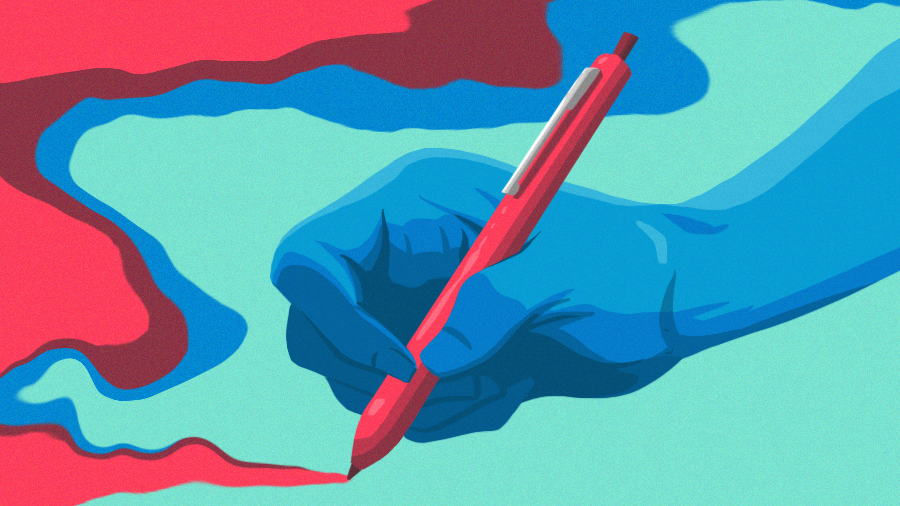
Stay up to date with recent funding rounds, acquisitions, and more with the Crunchbase Daily.



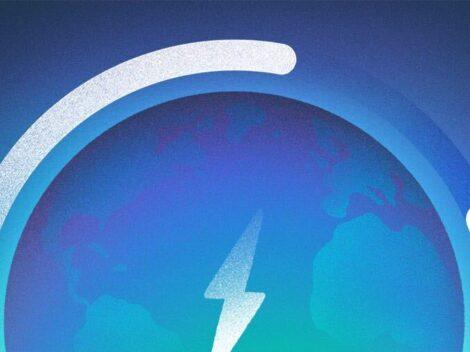
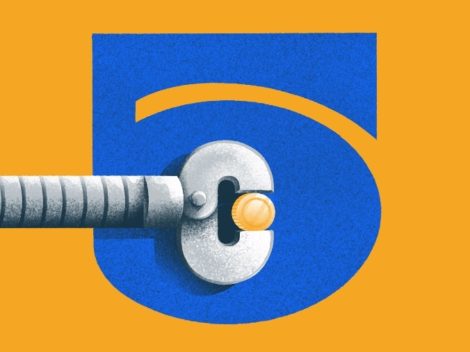
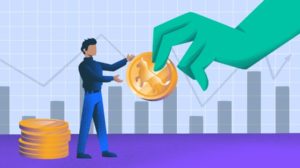

![Illustration of N. America-labeled piggy bank on an inclined plane. [Dom Guzman]](https://news.crunchbase.com/wp-content/uploads/Quarterly_n_am-300x168.jpg)
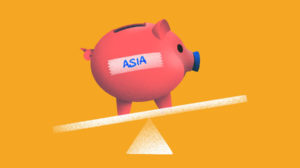

67.1K Followers